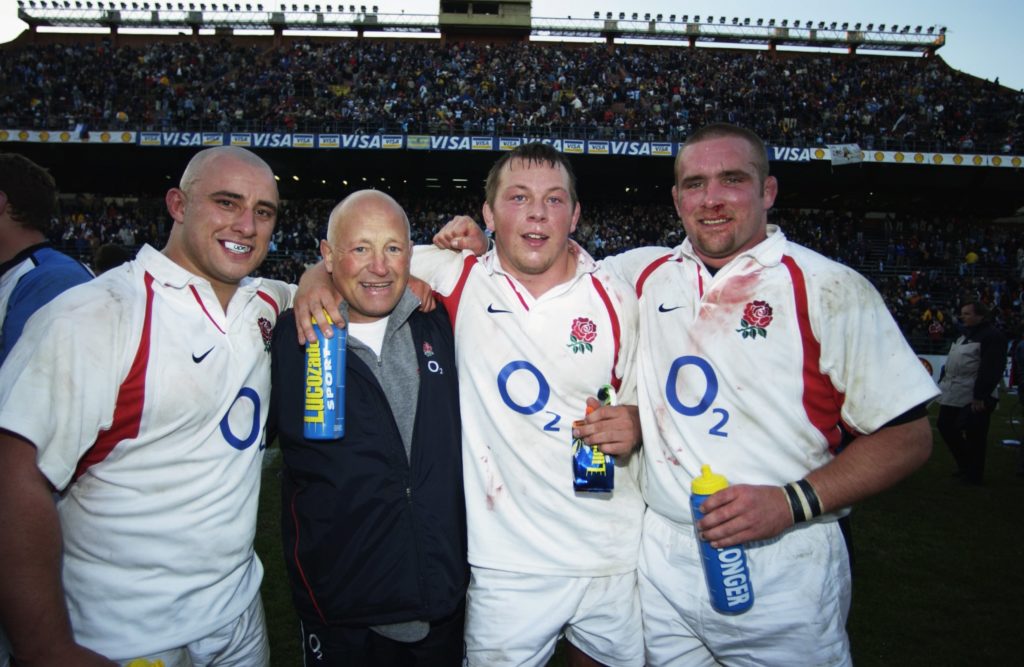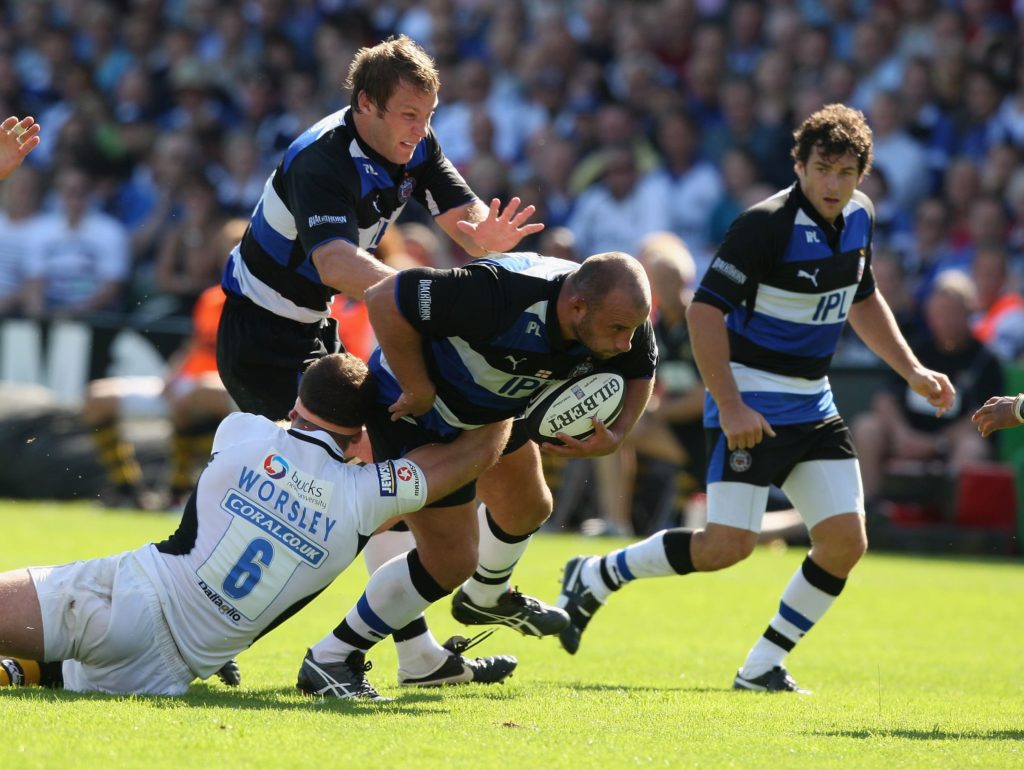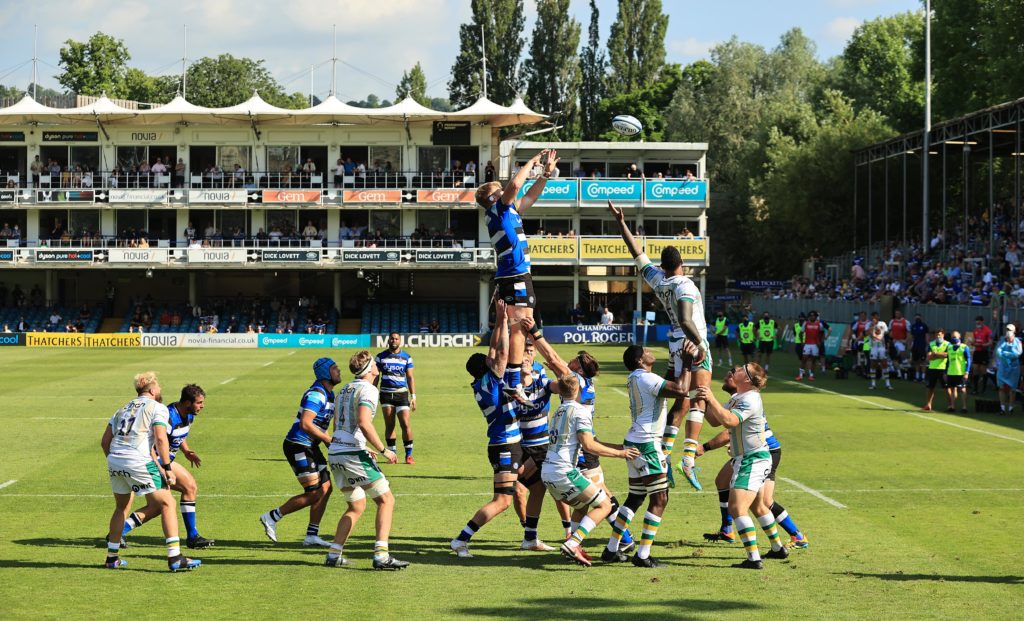The chemical reaction that occurs in my body when somebody asks me about rugby supporters is an odd one. I am acutely aware of the dangers of writing in any but the most superlative, uplifting tone about the loyal legions, but I’m afraid that some of my reflex views aren’t really that shiny at all.
As a young player, charging out for his school team with all the pent-up aggression and wannabe-bouncer posturing that comes at that age, the cheers and shrieks of those looking on elicited in me something like a shot of pure adrenaline to the left eyeball, courtesy of a crossbow-mounted needle. It was showing off in its purest form, and it was wonderful. As much as I loved my mates who played in the second XV, I would sometimes gaze over at them, flopping and grunting away during one match or another, wondering quite why they did it; I mean, what was the point in playing in front of nobody? Where on earth did they find their motivation?
This all passed, of course, and I soon became less awful in that sense, thanks in the main to the string of matches I played for the Saracens’ second stringers. Genuinely, there were fewer folks at those games on those wet Monday nights than we had been used to at school on Saturdays. A new source for the necessary adrenaline had to be found and, as I abruptly discovered at the age of 18, a decent right hook followed by an even more decent uppercut from John Mallett did the job just fine. I think it was fear that got me through those early days, but whatever, it worked.

Playing in front of large crowds came soon after and indeed it felt novel. Running out to enough noise that any attempt at verbal communication was futile does much to stir the soul; it either terrifies a player to such an extent that they fade away, or it lifts them to new levels of sporting arousal. Thankfully for me, it did the latter.
That was at Saracens, though, and I found the crowd at The Rec to be very different. Almost all of my memories of the Bath fans are positive ones, and I remain friends with a handful of them still, such is the mutual accessibility and close proximity in a city so small. The Rec is still a place I feel so proud to have played that, if I sat still and thought about it hard enough, the tears would come; they were there happiest days. I play all of that stuff down, probably because I’m a man, and probably because the strength of feeling there is enough to reduce me.
Hate is passionate, it is engaging, and it is involved. I find the opposite of hate to be indifference. At times, playing at The Rec was like playing rugby in a library.
There is a glitch, however, a patch of liquorice-black fog in the middle of my virtual bubble of memories from those days, and that bubble is the negativity I – we – received from those who sat in their seats and watched us fight. It would be easy to presume that the opposite of love is hate, but I don’t think this is true. Hate is passionate, it is engaging, and it is involved. I find the opposite of hate to be indifference. At times, playing at The Rec was like playing rugby in a library; I still recall one conversation on the pitch with a South African team-mate where he observed: “They’re giving us the silent treatment, boys. They only cheer when we’re winning!” I don’t know if these regular and prolonged periods of deafening silence were co-ordinated – I doubt very much that they were – but we hated it.

I once heard a football co-commentator excuse the apparent absence of any encouragement from the Barcelona crowd by telling us that these fans were so knowledgeable, so cultured in their thinking on the game, that they would only cheer when the team really delivered. This, to me, literally is not support. Cheering when teams dominate is easy, but encouraging them when the chips are down is where a fan’s real value lies.
Not for a second am I trying to tell any ticket-buying attendee how to emote, I merely wish to offer a player’s-eye view. Slightly more crudely, I remember another team-mate of mine trying to pump up a seemingly unconscious mob by doing that arm-wavy thing that really ought to be the preserve of becostumed mascots, and shouting: “Make some f***ing noise then, you ****s!”
It’s easy to instruct others not to read these things, but just imagine that on your smartphone right now there are hundreds of comments about you that anybody can read, then imagine not looking.
As my career progressed, so too did the means of, ahem, communication. First up was the fans’ forum website, where we would be deified one week, castigated and mocked the next. Social media was next, and any fan who fancied it had the chance effectively to message any player any message they wanted. It’s easy to instruct others not to read these things, but just imagine that on your smartphone right now there are hundreds of comments about you that anybody can read, then imagine not looking.
It is doubtless a fault of the human mind that we so often remember the bad bits with so much more clarity than the good; many of my former colleagues would agree that this is generally how professional rugby careers are remembered too. So I will force my mind to be positive for a paragraph or so, and I’ll see how it feels.

Bath fans when I played were not all old, they were not all posh, and they did not all wear Barbour jackets (only about 90%). They were very often hugely supportive, and a great many of them gave us their hearts every Saturday. We loved them for that. We loved them for hugging us or slapping our backs after losses, and we loved their unconstrained joy at our successes. I couldn’t be a ‘proper’ fan of just one club, I’m too objective and I need too much variety. But without the subjectivity and the durability of all those trooping supporters, we would have no spectacle; we would have no game at all.
The relationship between players and fans must, in my view, be a symbiotic one. Without the gladiators in the middle, there is nothing around which to unite. Without the baying hordes, it’s just men on a field.
I don’t think it took a pandemic to prove that to us. I think we knew. Stadia were never designed to be empty. They were built for mass attendance and ear-splitting noise to bombard the senses.
The relationship between players and fans must, in my view, be a symbiotic one. Without the gladiators in the middle, there is nothing around which to unite. Without the baying hordes, it’s just men on a field. Professional players are rightly expected to give it all every time they take that field and rugby is just so much better when fans do the same. Welcome back.
More columns from David Flatman
If you’ve enjoyed this article, please share it with friends or on social media. We rely solely on new subscribers to fund high-quality journalism and appreciate you sharing this so we can continue to grow, produce more quality content and support our writers.



Comments
Join free and tell us what you really think!
Sign up for free